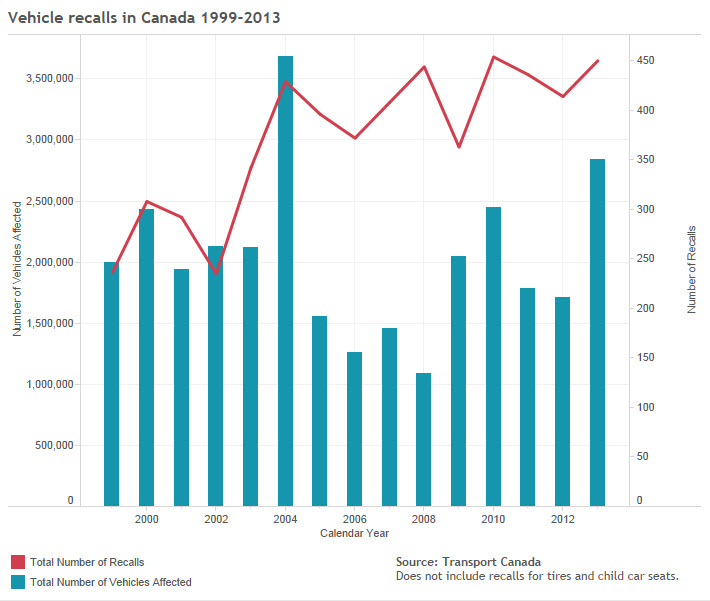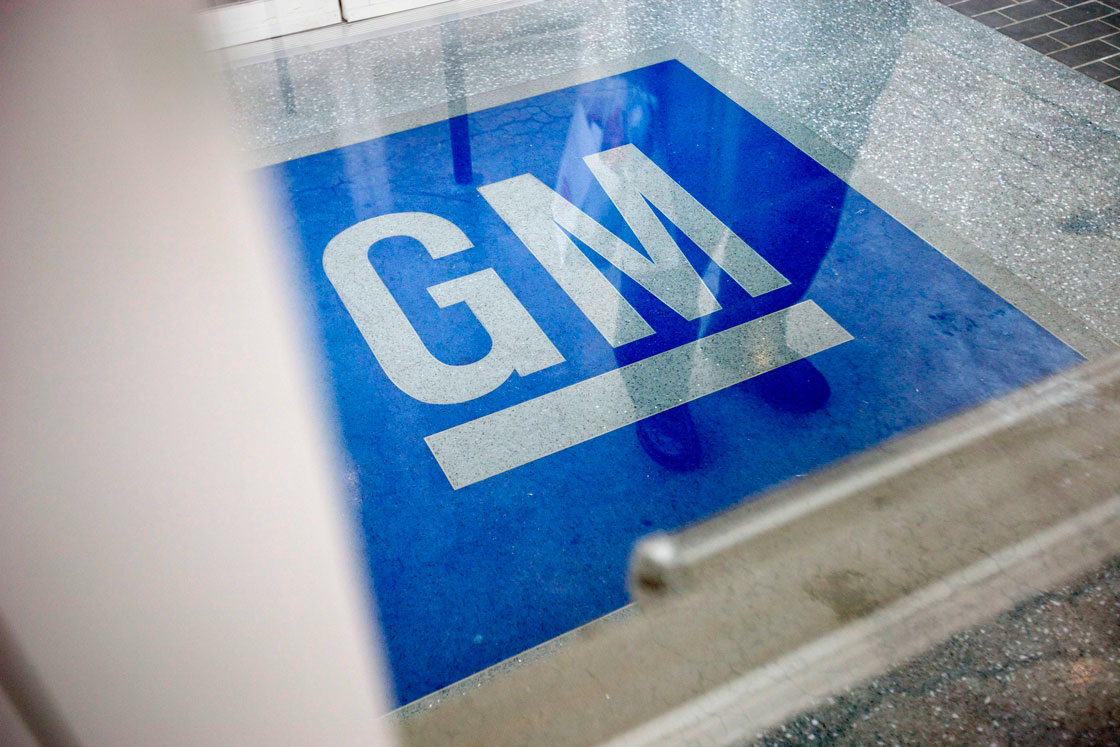To no one’s surprise, a string of high-profile vehicle recalls in recent years has meant many drivers have become far more attentive to what’s going on under the hood.

A make’s safety record has vaulted over other considerations such as fuel efficiency to trail only price as the most important variable in the average Canadian consumer’s decision about which car to buy, says Dennis DesRosiers, a veteran Canadian automotive industry expert.
“A decade ago, it would have been in the middle of the pack, maybe eighth or tenth,” DesRosiers said.
Recent recalls bear out the elevated concern harboured by Canadian car buyers.
When Toyota was forced to recall 270,000 cars in Canada in 2010 and temporarily halt sales – and even production – its share of the Canadian auto market plummeted.
The Japanese automaker lost nearly four full percentage points of market share, or roughly 70,000 vehicles, to the competition the next year.
Toyota has yet to regain its status among Canadians, as well. At 10 per cent of all vehicle sales, Toyota’s market share is still well below its peak of 13 per cent in 2009.
Again, not surprisingly, the increasing complexity of interconnected parts, software and other technology that has poured into vehicles in recent years under stringent regulatory demands is a chief culprit in a general rise in recalls.
Canadian recalls peaked in 2010, with 454 recalls for vehicles, according to Transport Canada. 2013 was a close second, however, with 450 vehicle recalls, affecting 2,838,624 vehicles.
For GM, faulty ignition switches in Chevrolet Cobalts and Saturn models resulted in a loss of power steering and air bag function. At Toyota, its damaging recall hinged on malfunctioning electronic throttle control systems.
The general thinking is that ever-more complex vehicles are opening up new ways for cars to break down.
“The more technology you put in a vehicle, the more likely it is something can go wrong,” DesRosiers said.
That may be true by volume — GM is calling in millions of vehicles across North America alone this year but only on a handful of models dating back to 2004.

Many of the models affected by the current wave of callbacks are makes manufactured in the mid-2000s. And as the GM ordeal illustrates, it can take plenty of time before the risks are acted on.
– With files from Leslie Young
Editor’s note: A previous version of this story referred to vehicle recalls by model year. For clarity, we have updated the story and graphic to reflect new information from Transport Canada on the number of recalls issued per year.


Comments